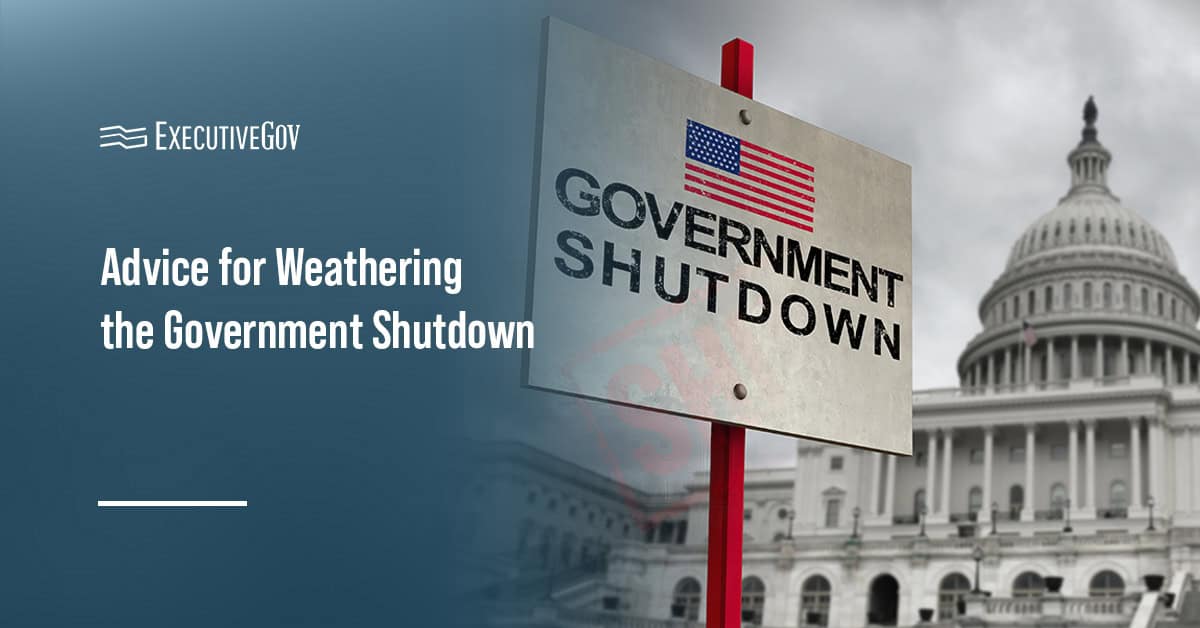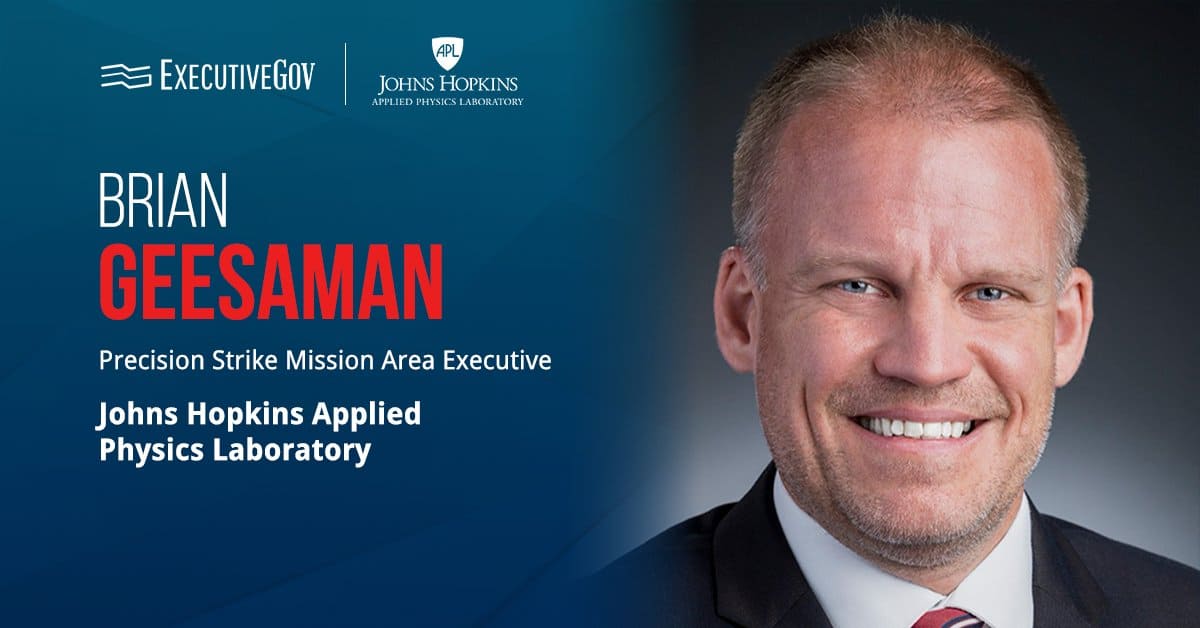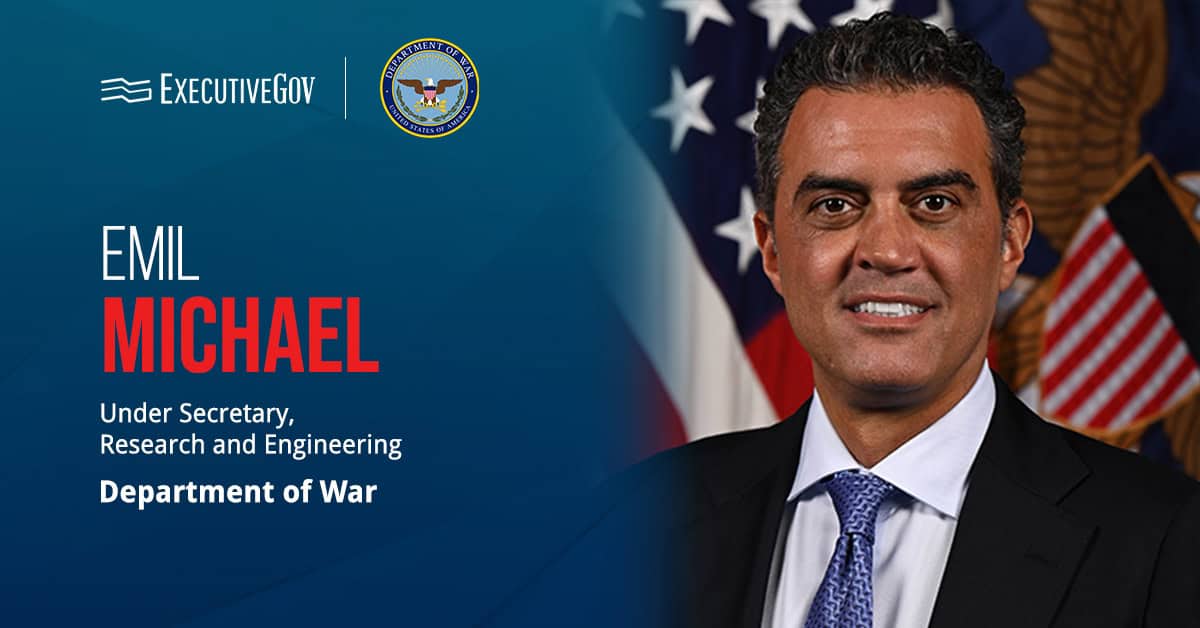The federal government shutdown is impacting each agency and project differently. This means GovCon executives need to stay in touch with contracting officers, meticulously document all impacts and hold tight for greater opportunity when the shutdown ends, according to a pair of leading experts.
The shutdown has entered day 23 as of publication of this article, halting many payments, sowing confusion and otherwise causing mayhem in the government contracting community. ExecutiveGov spoke with Cherylyn Harley LeBon, partner at the Cohen Seglias law firm and chair of the firm’s GovCon group, and Aaron Roth, Chertoff Group principal and head of federal strategy and security, for exclusive interviews about what GovCons need to know to succeed during this challenging period.
Hear the latest shutdown updates directly from Wash100 Award winner and Homeland Security Secretary Kristi Noem during her keynote address at the Potomac Officers Club’s 2025 Homeland Security Summit on Nov. 12! Discover innovative budgeting strategies Noem is using to get critical DHS employees paid. Sign up today!
Table of Contents
Are Government Agencies Still Awarding Contracts?
LeBon says at least one agency is still awarding contracts. (She represents GovCon clients across the Defense Department, intelligence community and others, both domestic and overseas.) The GovCon lawyer recommends that industry executives stay in constant communication with their contracting officers. Different agencies have different exempt employees—some are working, some are not.
GovCon executives should also assess their contracts. LeBon said they should look for clauses related to funding, stop work or termination as these will provide guidance on what to expect. Contracts that are fully funded typically continue, she said, while incrementally-funded ones may be halted due to funding issues.
“This is why contractors should stay in touch with their contracting officers and understand their contracts thoroughly,” LeBon said.
Are GovCons Getting Paid During the Shutdown?
The hottest questions LeBon is receiving from GovCon executives are: am I going to get paid, how long will the shutdown last and how long should I plan for delays? She said contractors are also wondering how to handle employees—should they be put on paid time off? If so, for how long? GovCon executives should develop flexible internal plans and communicate clearly with employees so they can plan for a longer shutdown.
It is critical for executives to document all impacts during the shutdown. LeBon said they should separately record all costs, including labor, storage, and ramp-up or wind-down expenses, from normal business costs if they receive a stop work order or experience disruptions. These records are critical, she said, if executives want to recover expenses or request time extensions.
One example of a cost incurred from stopping work is employees sitting idle. LeBon said these qualify as labor costs. Additionally, manufacturers may have equipment sitting unused, which can lead to storage costs.
How did DHS keep running, and paying employees, during the shutdown? Go straight to the top—hear directly from Sec. Noem during her keynote address at the Potomac Officers Club’s 2025 Homeland Security Summit on Nov. 12! Discover the latest partnership opportunities to take advantage of the One Big Beautiful Bill Act’s homeland security funding. Get your pressing questions answered during Noem’s Q&A session. Secure your seat today for this essential GovCon event!

The Importance of Cultivating Government Relationships
Roth, from the Chertoff Group, stressed that successful engagement with the federal government has to be both bottom-up and top-down. Bottom-up means understanding program-level requirements and building relationships with contracting officers. Top-down, he said, where GovCon executives cultivate senior-level relationships with political leadership, is especially important because Trump administration leadership is trying to drive change.
If executives want to be effective, Roth said they should understand the change being offered by government officials and offer aligned solutions.
“Be mindful of the trajectory of the leadership in this administration and what they are trying to accomplish,” he said. “It has to be an approach that is two-pronged: understand what they are trying to do and demonstrate that you can help them do it.”
Roth has not heard GovCon executives raise the prospect of possible layoffs thus far in the shutdown. While some contracts need decisions to determine staffing levels, he said prime contractors appear to be “tightening belts,” or streamlining costs and “holding their breath” to power through. The bite from the Department of Government Efficiency earlier this year was bigger, he said, as there were significant implications for staff and programs.
What Is Kristi Noem’s Supercheck?
Roth expects more innovative contracting mechanisms from the Trump administration to pay certain employees, such as Federal Aviation Administration air traffic controllers, if the shutdown progresses. This will be similar to Trump finding money to pay active duty military members and Noem using a “supercheck” to pay 70,000 law enforcement officers across DHS during the shutdown. The administration, Roth said, is essentially moving money from one pot to another to pay those on the job with backend recalibration later.
“To their credit, the Trump administration is trying to be creative and find ways to get those people paid during the shutdown,” he said. “They understand people need to be paid … If you expect them to continue serving, [often] living paycheck to paycheck, you have to find a way to get something into their accounts so they can continue living.”
Roth views the shutdown as a brief blip in an otherwise difficult year for GovCon executives. Companies weathered DOGE cuts to start 2025 and later a full-year continuing resolution.
They also greeted the One Big Beautiful Bill Act in July, which had a lot of priorities and massive funding. But a big end-of-year windfall didn’t materialize, Roth said. He recommends executives stay focused on where national security spending priorities are headed and best position themselves to benefit.
What Did the One Big Beautiful Bill Act Spend on DHS?
The OBBBA includes $190 billion in spending for DHS programs and agencies, according to a Deltek analysis. This includes $75 billion for Immigrations and Customs Enforcement and $69 billion and Customs and Border Protection. By category, the legislation provides $57 billion for facilities, $53 billion for border infrastructure and technology and $39 billion for personnel.
“At some point, there’s going to be opportunity, given the amount of money that was provided in the One Big Beautiful Bill Act,” Roth said. “Focus on a lot of those priorities that were communicated in that bill and figure out ways to execute on them. I think [the bill] offers tremendous opportunity for GovCons, from primes all the way down to smaller technology providers.”
Which Government Shutdown Was the Worst?
The longest government shutdown in U.S. history began on Dec. 21, 2018, when it closed for 34 days. House Democrats declined to sign off on spending bills that appropriated the first Trump administration with $5.7 billion for a southern border wall, which Trump desired, Business Insider reported.
During the nearly five weeks the government was shuttered, airports had flight delays as air traffic controllers and Transportation and Security Administration workers, who were working without compensation, began calling out sick. The government re-opened when Trump and lawmakers agreed on a funding bill that lacked money for the border wall.






